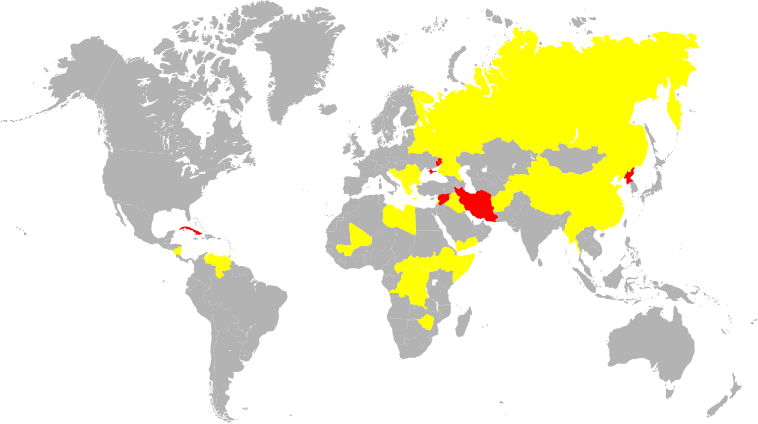Overview
U.S. sanctions require governmental approval for all interactions (regardless of whether money is exchanged or not) with persons subject to targeted sanctions or located in a comprehensively sanctioned destination.
All members of the University community need to take care that they do not violate sanctions regulations, directly or indirectly.
It is important to note that MU has a vibrant international community of students, scholars, faculty, and staff from comprehensively sanctioned destinations. All non-U.S. citizens physically located in the United States on approved visas are approved to participate in the activities for which their visa is approved. MU must be careful, though, to not engage people in online learning, research collaborations, or other educational and research activities with people while they are still located in a comprehensively sanctioned destination, unless Research Security and Compliance has reviewed the specific scenario and obtained the appropriate governmental authorization for the activity.
Current U.S. sanctions
 Comprehensive sanction areas are denoted as red. Targeted sanction areas are yellow.
Comprehensive sanction areas are denoted as red. Targeted sanction areas are yellow.
The U.S. government, through the Department of the Treasury’s Office of Foreign Assets Control (OFAC), has a variety of sanctions in place to achieve national security and foreign policy objectives. Sometimes these sanctions are implemented unilaterally (with only U.S. involvement), and sometimes these programs are implemented multilaterally (with involvement from several other countries).
Currently there are comprehensive sanctions regulating all services and transactions with persons located in the following places:
- Cuba
- Iran
- North Korea
- Syria
- Crimea, Donetsk, and Luhansk regions of Ukraine
The U.S. has also implemented targeted sanctions which impact specific people, organizations, and regimes. These entities are found on restricted party lists. As examples, targeted sanctions are in place for the following countries and regimes:
- Afghanistan
- Belarus
- Burma
- Chinese Military Companies
- Libya
- Somalia
- Russia
- Venezuela
Reach out to Research Security and Compliance if you need to engage with someone located in a sanctioned destination. We will help ensure you have the appropriate governmental authorizations in place, allowing you to continue your work.
Violations
Civil and criminal penalties can be imposed on the institution or individuals. These can result in fines and reputational damage. In egregious circumstances, they can result in jail time, loss of export privileges and loss of federal funding.
Your responsibility
Please be sure that all interactions with foreign parties are sent to Research Security and Compliance for review so that we can identify whether the party you intend to work with is subject to sanctions and to ensure MU has any required governmental approvals in place for the activity.
Contact us with questions.